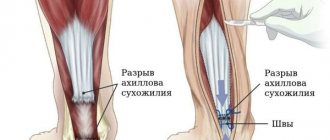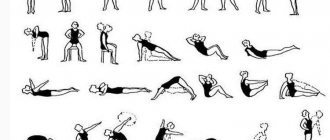American writer Maya Angelou once said: “Eating is a very intimate process. When you invite someone to eat with you and want to cook for them, it’s like you’re giving them a pass into your world.” Any memorable event in our life, be it joyful, exciting or sad, is not complete without a set table. Food is part of our culture. Therefore, it is not surprising that today most of us perceive it not just as fuel for the body, but also as an important emotional component of our lives.
Complex relationships with food are a problem in modern society. We eat when we are nervous or sad, thereby compensating for the lack of positive emotions. We are on endless diets, switching from a protein diet to cabbage soup. We conduct experiments on our own body, achieving the “ideal” weight and returning to the previous parameters after another breakdown. Perhaps we should finally admit to ourselves: we suffer from an eating disorder to one degree or another, and something needs to be done about it.
View on Instagram
Why does food evoke such strong emotions in us?
“Food and emotions are inextricably linked. All key processes of socialization and maturation are accompanied by meals. It starts in the first days of our lives: to bond with our babies, we offer them milk,” says Laura Thomas, Ph.D., nutritionist and bestselling author of Just Eat It.
“We often talk about this phenomenon in a negative way, trying to explain the nature of so-called emotional eating. When I work with my patients, I see these eating behaviors as a sign that something is wrong with the person,” Thomas continues. She explains that the desire to eat something tasty in moments of stress or excitement is due to habits formed in childhood.
View on Instagram
Why do we eat stress?
People eat for two reasons. The first is to satisfy hunger and maintain energy levels in the body. The second is to drown out stress and unpleasant emotions. Moreover, in the second case, we most often choose something sweet or fatty. However, after eating, the problems do not disappear, but a feeling of guilt for uncontrolled gluttony is added to them.
Photo: istockphoto.com
One of the main causes of emotional eating is hormones. When stressed, the body begins to produce cortisol, the so-called stress hormone. It sends a signal to the brain about mobilization - supposedly it is necessary to replenish energy in order to cope with life's difficulties. This is why instead of an apple or yogurt you want to eat something sweet, salty or fatty.
According to Andrei Semeshov, in many cases the habit of stress eating goes back to childhood: when, as a reward for some success or to console us, we are offered something tasty. Thus, a certain pattern is formed: if something upsets you, you need to reward yourself with a cookie or chocolate.
How to get rid of the feeling of hunger? 10 healthy snack ideas
Another common reason lies in physiological characteristics, notes the nutritionist. The body's reaction to stress is quite standard - mobilization. For example, the blood supply is redistributed so that blood flows away from the digestive organs and flows to the muscles. When the brain believes that the body is in potential danger, we have no time to eat - we need to save ourselves. In this case, when we start chewing something intensively, we seem to be trying to turn the physiological reaction in the opposite direction, to switch from the “we are in danger” mode to “everything is fine, we are eating.”
It is quite easy to distinguish real hunger from the desire to eat stress. The first develops gradually; you don’t want something specific, but eat in general. And after saturation, the brain gives an appropriate signal. While emotional hunger comes on suddenly, you only crave certain foods—like your favorite burger or fries. But you are unlikely to feel pleasure and satiety.
In addition, worries negatively affect metabolism - they slow down metabolism, food is digested worse, and you gain extra pounds faster.
What is emotional eating?
Emotional eating is quite common. People susceptible to it tend to fall into two types: those who start eating more than usual due to stress, and those who eat less. The essence of this unhealthy eating behavior is that the process of food consumption becomes a response to emotions. “When we work with patients on this problem, we often find much deeper root causes,” says Thomas. “This could be years of self-restraint and dieting, disrupted or malnutrition. A psychological ban on food, manic calorie counting, the perception of certain foods as bad and harmful - all this leads to negative consequences. As a result of such prohibitions, the body gives a response that provokes emotional eating.”
During the first consultation with the patient, the nutritionist first of all finds out what role food plays in a person’s life. Then Thomas finds out from the client what he lacks for happiness and what gaps he is trying to fill. “There’s nothing wrong with us using food as such an emotional plug. People who engage in this habit should not be shamed or judged. This is a harmless defense mechanism. Some people become addicted to gambling, alcohol, sex or drugs, although these addictions are not so adaptive.”
Problems arise when, in our arsenal of life, emotional eating becomes the only tool for shifting attention from the problem. Thomas advises expanding the adaptive toolkit: for some, it’s enough to just have a good cry, for others, it’s worth going to psychotherapy or developing mindfulness.
View on Instagram
What could be the danger of such behavior?
What are the dangers of constantly “eating” stress? There are three main consequences of such a habit:
- Excess weight. Stress is often a cause of excess weight gain, especially in children. During times of stress, the feeling of hunger and satiety becomes less pronounced. Therefore, a person eats excess food, that is, overeats. Sooner or later this will affect excess weight and the accumulation of fat mass. It is also worth considering the fact that the body gradually gets used to this method of dealing with stress. Therefore, food will no longer “calm”, but the habit will remain. Years of work stress will certainly lead to obesity.
- The sensitivity of the brain to endorphins will also constantly begin to decrease. The reason for this is the regular increased concentration of serotonin. Getting rid of depression or prolonged stress will be much more difficult each time. In some cases, stress, nervousness and fatigue are completely “summed up”, accumulating over a long period of time.
- Due to the fact that a person fights stress with the help of external influences , over time this will lead to a lack of self-control in such situations. In this case, it will not be possible to act rationally “on emotions”. As practice shows, this most often happens in women.
What role does stress play in our relationship with food?
A Harvard Health report states: “Stress can reduce appetite. In stressful situations, the nervous system sends signals to the adrenal glands to increase the release of the hormone epinephrine (also known as adrenaline). Epinephrine helps the body become fully alert and enter an excited state, which suppresses the feeling of hunger.”
However, after some time, the adrenal glands begin to work again, this time releasing the stress hormone cortisol into the body, which, on the contrary, awakens appetite and the desire to eat everything. And even when the stressor is no longer bothering you, your cortisol levels may still remain high, leading to a stress-eating-stress-eating cycle.
View on Instagram
Why do you want to eat during stress?
The answer is obvious - this is a kind of defensive reaction and an attempt to relieve tension and excitement of nerve cells. The simplest option is to increase the concentration of those same endorphins.
Another option is to take antidepressants, which significantly reduce the sensitivity of the nervous system to stressful situations, but the body cannot synthesize them on its own. This is why the brain “provokes” eating sweets.
That is, this is a normal reaction of the body. Nutrition in this case has a protective-adaptive orientation. And this really allows you to survive a stressful situation, but if you constantly do this, then you cannot do without excess weight. And this ultimately negatively affects not only the functioning of the brain (the vessels of which will simply become clogged with cholesterol), but also the cardiovascular system.
It is worth noting that the desire to eat sweets does not always arise. It all depends on the individual physiological characteristics of a person, his own food preferences. Men, for example, in such situations more often want something salty or crunchy, like chips. But all these are signals from the brain, which is trying to stimulate the production of endorphins in a similar way.
How has the diet industry affected our relationship with food?
Following diets has always been associated with a healthy lifestyle, but in recent years the situation has gradually begun to change. If previously diets and fitness were perceived primarily as a means of losing weight, now the focus has shifted to health, mental and physical, and long-term results.
Thomas notes a significant difference in attitudes toward diets between younger and older patients. “This is especially true for those who are now 50–60 years old. They are children of a diet-obsessed society. However, now the situation is returning to normal. Among young people there are much more opponents of diets. True, they have other problems: many become victims of “clean eating” and orthorexia. Adult patients prefer to use diet pills and laxatives the old-fashioned way.”
Dalton Wong, trainer to Gwendoline Christie, Jennifer Lawrence, Olivia Colman and other stars and founder of the London studio Twenty Two Training, also notices all these changes. “Many of my adult clients were raised by parents who, as a result of the war, developed the habit of eating every last crumb. Naturally, they taught their children the same. Because of this, many of us become addicted to food. When choosing a training program for my clients, I always try to understand their triggers and emotional reactions to food.”
Society is finally coming to understand that there are no good or bad products. “People believe that poor eating habits are the result of a lack of willpower and self-control. Do you regularly use food as a way to relieve negative emotions? Or is it just a breakdown after prolonged self-restraint? Or maybe the whole problem is an imbalanced energy balance? — Thomas shares the questions he asks his clients during consultations.
View on Instagram
How are food and exercise related?
According to Dalton Wong, food, exercise and health are links in the same chain. “Before you build a connection between training and nutrition, think about why you are doing physical activity in the first place. Is this a way to boost your ego? Or do you want to get in good physical shape to run a marathon? Maybe you are trying to become stronger or is it for rehabilitation? In each of these cases, the nutrition plan should be different.”
However, regardless of the goal, Wong encourages his clients to exercise for fun. “If you are running or training for a marathon, 80 percent of the program, including nutrition, should be aimed at achieving the final result, the remaining 20 percent is space for freedom. There is no need to keep yourself in Spartan conditions.”
View on Instagram
How to learn intuitive eating?
Thomas says the first thing you need to do is change the way you think about nutrition. This applies to everything from the perception of food (what is “good” and what is “bad”) to the ability to recognize the body’s signals for satiety. “Imagine your body has a gas gauge, like a car. When the needle is at a minimum, you experience extreme hunger and work on your last legs. And if it goes off scale, it means you overate to the point of nausea,” explains Thomas. Learning to read your hunger signals, which can be accompanied by sudden mood swings, loss of energy, headaches, stomach discomfort and excessive salivation, is the first step towards healthy eating behavior.
Thomas believes that it is very important not to blame yourself for breakdowns and treat your body with care and love. You need to learn to understand, recognize and feel your emotions. “Allow your inner self to establish a dialogue with your body.”
In conclusion, it is worth quoting the words of Padma Lakshmi, author of Love, Loss and What We Ate, food critic, TV chef and woman from the cover of the May issue of Indian Vogue, about our difficult relationship with food: “I am what I eat. And how I feel at every moment. I know I'm not alone. Food not only fills our stomachs, but also our souls.”
Subscribe and get one step closer to fashion professionals.











